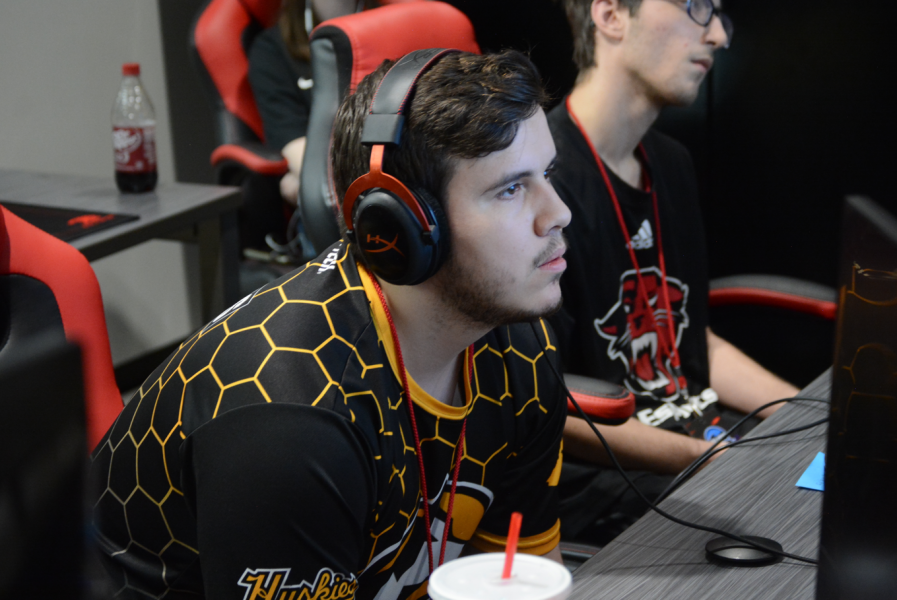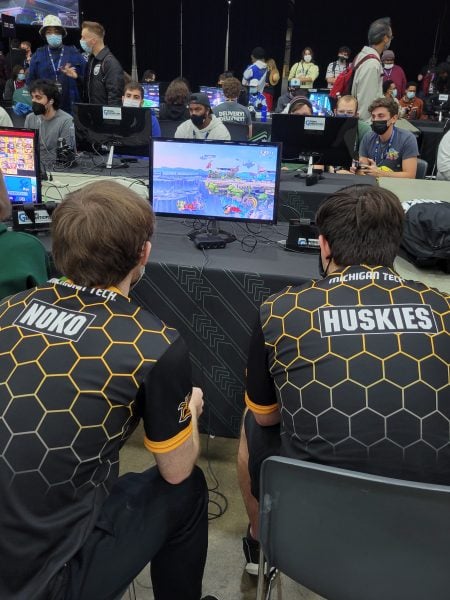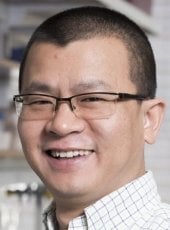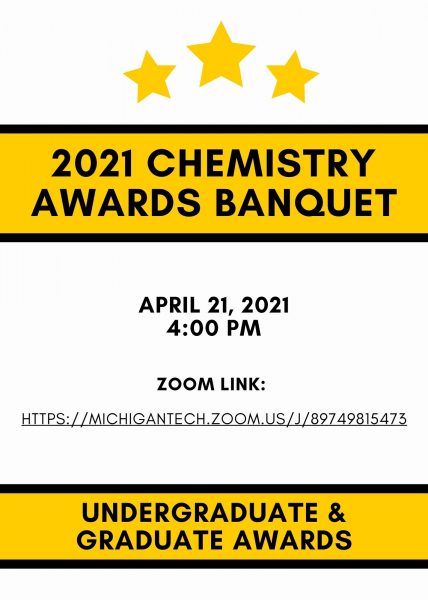Talk about making the most of your college experience. If you’re thirs-year student Samantha Ludwick just studying medicinal chemistry at Michigan Tech isn’t enough. She is active on campus as a researcher learning how molecules interact, Chemistry Learning Center Coach, and VP of Philanthropy for the Delta Zeta National Sorority. Samantha also completed an internship last summer with Pfizer. Samantha spends lots of time in the lab, and she loves it. We sat down to catch up with Samantha about her research, internship, and the other things she has done as a student.
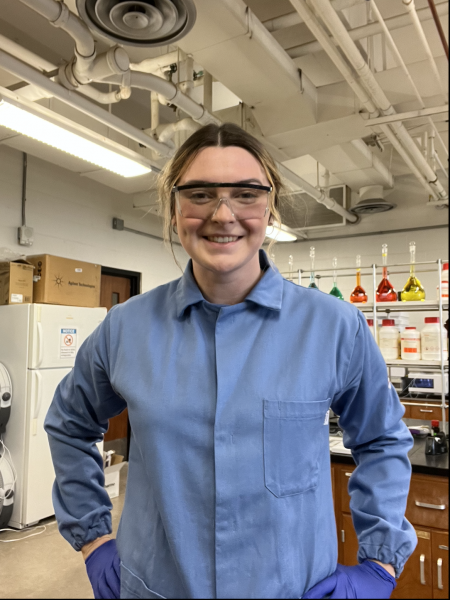
How did you get interested in research?
My interest in research stems from my Organic Chemistry 2 lab at Tech. In this class, we did a 5 week-long organic synthesis-based project where we had to come up with and execute a procedure to efficiently synthesize and characterize a target molecule. In the end, my group created the molecule but had a very low yield (namely, a lot less was made than was intended). Rather than feeling discouraged, I was energized by the problem-solving opportunity that this presented me with.
Failing and figuring out how to improve your experimental process is a huge part of research, specifically organic synthesis-based research. I ended up reaching out to my TA for that class over the summer and meeting with her to discuss potential research opportunities for me at Tech. I explored other labs, but ultimately joined my TA, and now research mentor, Monica Nyansa, in the Tanasova Lab doing organic synthesis research.
What kinds of things do you do in the Tanasova lab?
My current research is based on organic synthesis and characterization, with an application to biologically active molecules. In this lab, I have created procedures to develop and characterize novel molecules. One key distinguisher of biological molecules is in understanding the chirality, or orientation in space of the molecules. For molecules meant to interact within the body, one orientation of a molecule may be therapeutic, whereas the other orientation may potentially be dangerous. Oftentimes when molecules are synthesized, they are present in a racemic mixture of enantiomers, which is a mixture of both chiral orientations of the molecule.
To distinguish enantiomers, I learned a technique called Mosher Ester Analysis, which involves the synthesis of diastereomers of molecules and analysis via NMR (nuclear magnetic resonance). NMR is a machine that helps to identify and confirm a molecule’s structure. NMR can identify diastereomers and not enantiomers, which is why Mosher Ester Analysis is necessary. My key research goal has been to synthesize a novel molecule and determine its absolute stereochemistry (or orientation in space) via Mosher Ester Analysis. As I continue this research, I plan to take a more biochemical approach and characterize novel therapeutic molecules.
Some things that I do in the lab include setting up and carrying out chemical reactions, purification, and analysis. Each reaction is based on procedures that I’ve found in literature research and have modified to best fit my desired outcome. Purification typically involves column chromatography, or a technique to extract the desired product from various impurities based on polarity and the solvent utilized. Analysis manifests itself in a variety of techniques, with the most important one being NMR. Each day in the lab is slightly different, which keeps things exciting for me. Throughout my time in the Tanasova lab, I have greatly improved my laboratory techniques and have become a much stronger scientist.
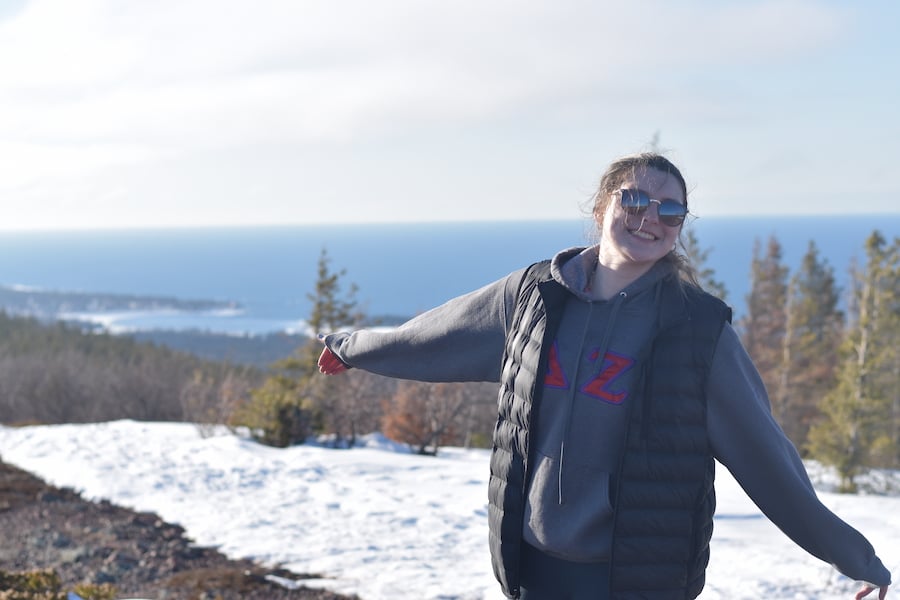
How do you think working in the lab has set you up for success in your after-graduation plans?
Becoming involved in undergraduate research has encouraged me to consider graduate education in chemistry. Before joining the Tanasova lab, I had never really considered pursuing a PhD in chemistry. Spending each day in the lab and learning more about the nitty-gritty of organic chemistry has helped me align my talents and passions with something that I enjoy doing. My technical and analytical laboratory skills and analysis have grown significantly since I joined the lab. I am certain that they will continue to grow as I continue my work. After I graduate from Tech, I have the potential to enter a graduate program with a strong understanding of organic synthesis.
What do you enjoy most about the research you do?
My favorite part about research is how challenging it can be. There are times when I obtain unexpected data, or a certain procedure doesn’t work, and I must determine a way to resolve the issue. Sometimes my proposed solution doesn’t work, and it’s back to the drawing board. This process can be lengthy yet has taught me the importance of perseverance. I enjoy solving problems and my research is a great outlet for doing so.
You’re a coach in the Chemistry Learning Center. What do you do? How has this helped you?
I coach students in Organic Chemistry and Chemistry 1 and 2 via weekly and walk-in appointments. I’ve learned communication skills and how to guide students as a mentor and coach. I’ve learned to approach each student differently as they have unique needs and different learning styles. I use analogies and explain things in a multitude of ways until the concept sticks. It’s my responsibility to get them comfortable to learn. Patience is key. I’ve learned to be more patient. In the end, I want them to succeed.
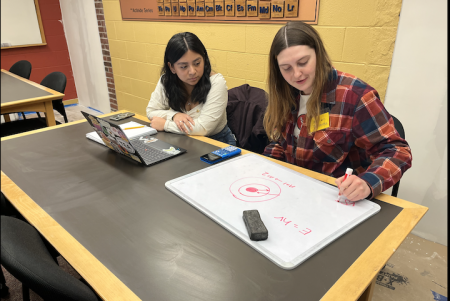
You recently completed an internship as a Global Sterile Injectables Intern at Pfizer. What types of things did you do there?
At Pfizer, I worked with the documentation department of Chemical Quality and Quality Control Chemistry. Essentially, I got to see the types of testing and regulation that are done on a drug before it gets released to the market. My intern project concerned retain samples, or products that are pulled at the end of production to allow for future testing. With this project, I determined and standardized retain for 200+ products that were produced at my site. I implemented my procedure into a standard operating procedure (SOP) for future use by the company. Through this project, I gained a deeper understanding of applications of my degree and learned more about what corporate life entails.
How else did you benefit from this internship?
My internship with Pfizer exposed me to a lot of the pharmaceutical industry firsthand. I had the opportunity to meet with professionals in various areas of the company, including research and development, lab professionals, and manufacturing. I learned that there are many ways that I can apply my medicinal chemistry degree after I graduate, and that was very refreshing.
And there were other essential skills I developed. I gained independence and leadership skills due to my project ownership. I learned how to speak up and advocate for what I needed to complete the project. I became better at networking with company leaders. I was able to move a project forward that was important. I also had to move to North Carolina by myself and adapt to a new place. I’m very grateful for this experience, and am glad that I was given the opportunity to push myself outside of my comfort zone.
Plus, I learned what my degree looks like in the real world. I saw I could have a good-paying and enjoyable career.
What is next for you?
This next summer, I will be working as a Validation Intern with Pfizer. Again, I will be exposed to new areas of the pharmaceutical industry, and am very excited for this opportunity. I plan to continue doing research with the Tanasova lab throughout my senior year (Fall 2023-Spring 2024). Continuing to give myself a broad range of experiences will allow me to become more well rounded, while simultaneously deciding the best career path for me.
